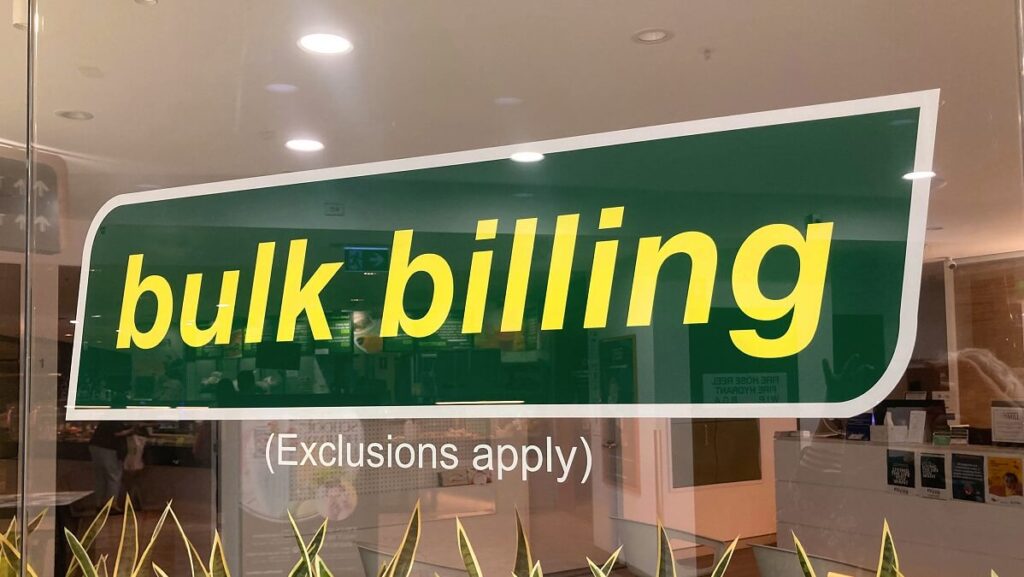Australia has seen a significant decline in fully subsidised GP clinics over the past year. Data analysis conducted by The Guardian reveals a substantial drop in the number of dedicated bulk-billing practices, with one electorate experiencing a 28 per cent decrease.
This analysis, based on the Healthdirect doctor database, indicates that 455 GP clinics shifted from fully bulk billed services to a combination of bulk billing and out-of-pocket fees over the past year (this is often called ‘mixed billing’). Additionally, 114 bulk-billing clinics are no longer listed, either due to closure or their removal for other reasons.
However, there is some hope on the horizon for patients: At least 124 clinics transitioned from mixed billing to fully bulk billing over the past six months, while 35 new dedicated bulk-billing clinics were added to the register. Despite this, there was a net increase of 301 GP clinics charging out-of-pocket fees during the same period.
The data also highlights regional disparities in bulk-billing practices, with certain areas experiencing more significant declines.
For instance, Pearce in Western Australia experienced a decrease from 36 per cent to 8 per cent in GP clinics listed as bulk billing only, while Dickson in Queensland experienced a similar drop from 29 per cent to 8.2 per cent.
The electorate of Franklin in Tasmania, covering towns such as Dover and Cygnet, notably had no bulk-billing-only GP clinics listed in 2024. While Franklin still offers discretionary bulk billing in some clinics, this underscores the challenges faced by patients who need access to fully subsidised healthcare.
Dr. Stephanie Ng from City Medical Centre in Adelaide said costs of rent, staff wages, software, equipment, and utilities have compelled some clinics to introduce out-of-pocket fees. She specifically named utility costs as her outgoings “killer”.
“In the past few years, the inflation rate has gone crazy. All the staff’s wages have gone up at least 15 per cent, and all the consumables have gone up pretty much 15-30 per cent, so we can’t actually afford that.”
The health minister takes action (sort of)
In response to these trends, the government increased rebates for bulk billing – but, again, it’s not universal. In November, the government raised the rebate given to GPs for bulk billing concession card holders and children under 16 during most standard consultations.
Federal Health Minister Mark Butler noted a rise in bulk billing numbers, especially in clinics that offer mixed billing treatments.
Dr Ng’s practice is one of these – but the increased bulk billing is almost entirely focused on the higher incentives on offer. Her patients under 16 years old and concession card holders are being bulk billed – but no one else.
Bulk billing is less available now than it was before COVID
Despite political efforts, the rate of bulk-billed services remains below pre-pandemic levels. Dr. Lesley Russell from the University of Sydney’s Menzies Centre for Health Policy and Economics expressed concerns about the erosion of Medicare. She highlighted the impact of rising operating costs and the possibility of corporations influencing billing practices:
“The way Medicare is currently operating and what this data highlights perfectly is how the universality of Medicare has been undermined.”
There’s no doubt that the cost of operating a general practice has risen – along with everything else – but there’s no publicly available data on this. Dr Russell wants more transparency around how doctor’s costs have risen, and by how much.
“But it’s pretty clear that the doctors themselves now feel dramatically less constrained about what they charge now than they used to,” she said. “It seems that clinics reflect what other clinics in the area are doing … and that’s perhaps why you see that area around Newcastle and Adelaide with decreasing bulk billing.”
This situation adversely affects vulnerable Australians, such as new migrants, especially those seeking maternal care and care for specific ongoing conditions such as diabetes.
Overall, the data underscores the complex landscape of healthcare accessibility in Australia and the challenges faced in maintaining access to bulk-billed services.
Do you have access to a bulk billing doctor? Why not share your experience in the comments section below?
Also read: TGA launches inquiry into medicine shortages in Australia

